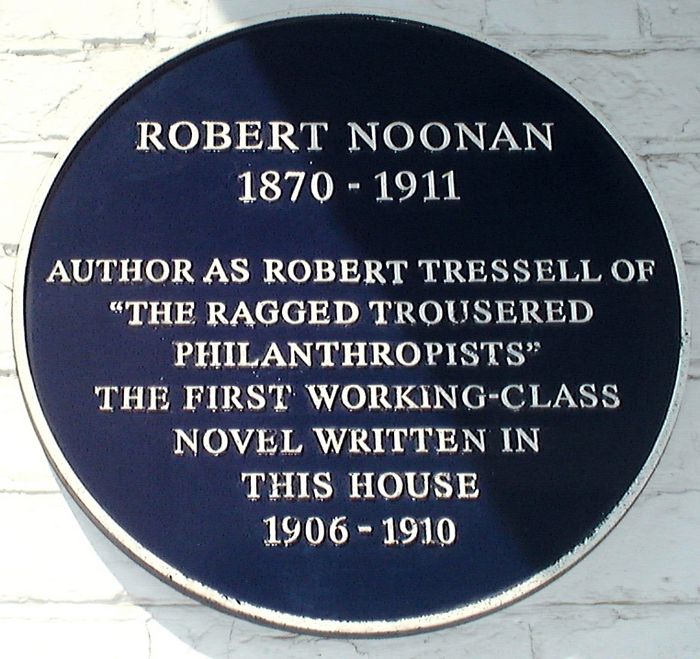Local hero Robert Tressell

Blue plaque in London Road in Bohemia marking the house where Robert Tressell wrote his best-selling novel.
Robert Tressell was born in
In 1888, Robert moved to
It was here that he learnt of the ways of the industry that he would later write about in his novel, although his actual conditions were a world away from the proletarian characters of the book. Despite becoming the Secretary of the Transvaal Federated Building Trades Council, he was able to afford to send his daughter to an exclusive convent school and also to employ his own black manservant called ‘Sixpence’ and of whom he was said to be “very fond”.
As a member of the 1898 Association, he helped to form the Irish Brigade, an anti-British force that fought alongside the Boers in the Second Boer War. Here accounts of his life become complicated – some assert that he himself took up arms in the war and was interned by the British until the end of the war when he came to
AIRSHIP
Robert had to start working in part-time jobs on top of his full-time occupation, and did not join a trade union. For a while, his political beliefs appeared to have moved rightwards, like many leading socialists of the time, to a more social-chauvinistic and anti-German viewpoint. Far from the days when he helped and maybe fought with the Boers against
TUBERCULOSIS
Influenced by another painter and decorator, the socialist-cum-Marxist William Morris, he joined the Social Democratic Federation in 1906. The next year, after a dispute with his employer, Robert lost his job. Despite the demand for his skills, his health began to deteriorate and he eventually developed tuberculosis. He started to write.He wrote under the pen name of "Robert Tressell" as he feared that the socialist views expressed in the book would have him blacklisted. He chose the surname Tressell as a pun on the trestle table, an important part of a painter and decorator’s kit.
REJECTION
He completed The Ragged Trousered Philanthropists in 1910, but the 1,600 page-long hand-written manuscript was rejected by the three publishing houses that he submitted his work to. The rejection severely depressed him, and his daughter had to save the manuscript from being burnt. It was placed for safekeeping in a metal box underneath her bed. Unhappy with his life in
PUBLISHED
Kathleen was determined to have her father’s novel, "The Ragged Trousered Philanthropists," published. In April 1914, a publishing house bought the rights to the book for £25, and it appeared in
even the edited edition was credited with the landslide Labour victory in 1945, and the election of two non-Labour-endorsed Communist members of parliament in that year. [abridged from Wikipedia]
□ The Robert Tressell Centre,
Leave a Response
You must be logged in to post a comment.

